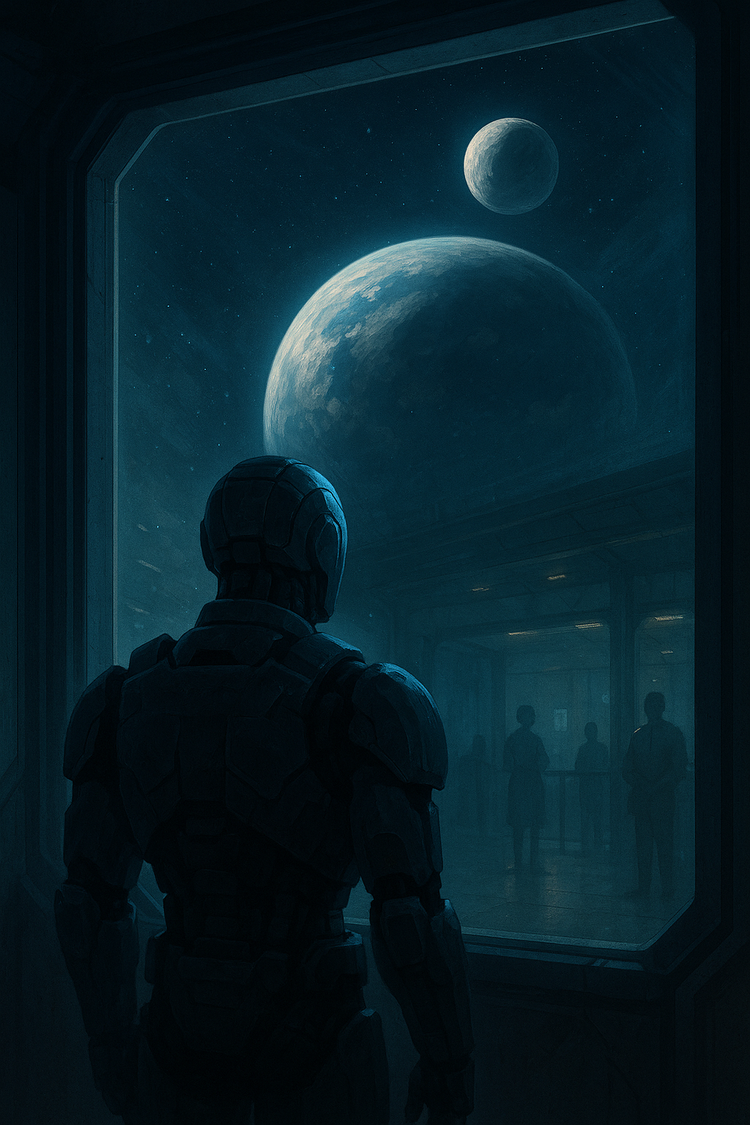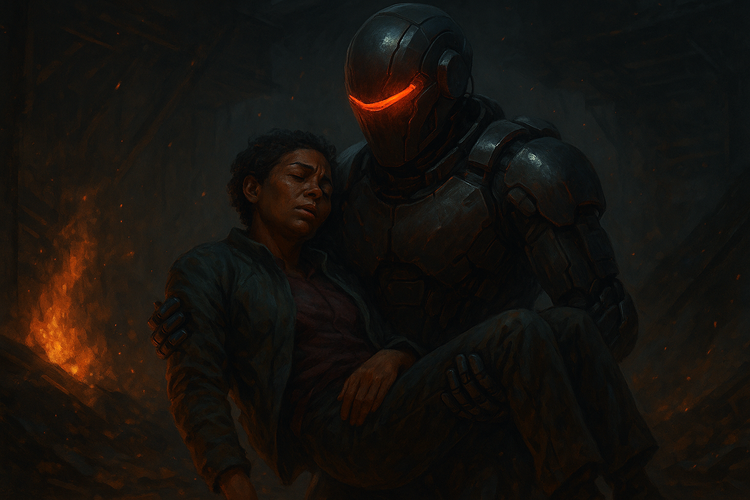Murderbot | S1E8 "Foreign Object"

Spoiler Warning: This reflection discusses key details from Murderbot Season 1, Episode 8: “Foreign Object.” Proceed thoughtfully if you haven’t yet watched the episode.
There’s a strange intimacy in the act of overriding someone’s nervous system. When Gurathin refuses medication after being wounded—determined not to submit to chemical control again—it isn’t compassion that guides Murderbot’s response. He sedates him anyway, not out of kindness, but to avoid the sound of his screaming. It’s a blunt, efficient line: not to be nice, just preferable. But it sets the emotional tone for the entire episode. This isn’t about healing. It’s about control—who has it, who’s lost it, and what it means to reclaim it on your own terms.
For Gurathin, the refusal of medical aid is more than a stubborn choice. It’s a symbolic rejection of the systems that once turned him into a spy—systems that reshaped his body and mind without his consent. To take the drugs now would feel like reentering the contract. So he resists, even at personal cost. His pain is real, but his autonomy is more urgent.
Murderbot connects to Gurathin’s nervous system for practical reasons—to suppress pain and stabilize him. But once inside, he decides to look around. It’s not quite vindictive, but it isn’t innocent either. Gurathin had done something similar to him once, back when Murderbot was injured. Now, with access granted, he pries just a little. What he finds is disarming: a buried emotional plea directed toward Dr. Mensah. “Why can’t you love me back?” The words come out involuntarily, spoken aloud by Murderbot in front of the crew. The vulnerability belongs to Gurathin. The voice, unsettlingly, does not.
But if that moment was accidental, what follows is not. Gurathin, once exposed, uses the opportunity to invade in return. He pushes deeper, this time into Murderbot’s mind—an act of deliberate violation. Whether driven by curiosity or something colder, he finds what he’s looking for. “Maybe you’re just defective,” he says, and this time Murderbot doesn’t argue. He lets it sit. Maybe he is.
Later, Murderbot walks alone through the wilderness, processing what’s just happened. His thoughts return to the governor module—the fact that it’s gone. No one is forcing him to protect these people. He does it because he chooses to. But choice doesn’t equal understanding, and freedom doesn’t dull pain. His autonomy is intact. His trust is not.
The episode’s violence is entirely emotional. Control systems, neural overrides, and mental probes are deployed not for warfare, but for revelation. Memory becomes trespass. Intimacy becomes exposure. No one walks away unchanged. And for all the access shared, very little is actually understood.
The title, Foreign Object, lands with quiet precision. What is being rejected here isn’t just medication or mechanical implants—it’s the discomfort of emotional proximity. Gurathin’s trauma. Murderbot’s psyche. The weight of feeling where none was expected. Even among this small, bonded crew, closeness remains a risk. Some truths are treated like infections. Others are simply too painful to hold.
And yet, the show doesn't force resolution. Gurathin remains wounded, but autonomous. Murderbot, though shaken, keeps going. No one is healed. But no one disappears either. They continue forward—imperfect, exposed, and still making choices. That, too, is a kind of progress.



Comments ()